The Senate Is About to Pass the Epstein Files Bill the Minute It Arrives.
The bill is on track to clear the Senate immediately upon arrival. It will reach Trump’s desk within hours, testing whether his promise to sign it means full transparency or something else.
📌 NOTE FOR NEW READERS: The 50501 Movement organizes peaceful action across all 50 states to defend democracy. 80,000+ subscribers strong and growing. If this resonates with you, hit subscribe and join us.
TL;DR:
On Tuesday, the House voted 427–1 to release the Epstein files, and the Senate has already arranged to pass the bill the moment it arrives on Wednesday morning. From there it will move directly to President Trump, who has said he will sign it. But just days before the vote, Trump instructed the Department of Justice to open a new investigation into Epstein’s connections, a move that activates the bill’s provision allowing the DOJ to withhold records tied to “ongoing investigations.” At stake is a familiar tension in American history: whether a moment of rare congressional unity leads to genuine transparency, or whether executive power reshapes the outcome behind closed doors.
Inside Yesterday’s Vote
Yesterday afternoon, the House voted 427–1 to pass the Epstein Files Transparency Act, a rare moment of near-unanimous agreement. Advocates and survivors watching from the gallery reacted with visible relief as the tally was announced.
Shortly afterward, Senate Minority Leader Chuck Schumer moved for unanimous consent to pass the bill the moment it arrives from the House. No senator objected.
Here’s what is scheduled to happen next:
Wednesday morning: The House is expected to formally transmit the bill to the Senate
Upon receipt: The Senate will pass it immediately under the unanimous-consent agreement
Next stop: The bill goes straight to the President’s desk, without amendments or delay
Trump has said he will sign it
But the timing raises a new question.
The Order Trump Issued Before the Vote
On November 14th, President Trump directed the Department of Justice to open a new investigation into Epstein’s ties to former President Bill Clinton, officials at JPMorgan Chase, and several others.
This raises an uncomfortable question:
Did the president just create his own escape hatch?
Lets review the timeline again and consider the sequence:
Months of opposition: Trump repeatedly dismissed the bill as a “hoax,” publicly criticized Republicans who supported it, and urged allies to block it.
Sunday reversal: When it became clear the House had the votes, he abruptly announced he would sign it.
November 14th: He ordered the DOJ to begin a new investigation into Epstein’s connections.
Tuesday afternoon: The House passed the bill 427–1.
The effect is unmistakable: with a new “active investigation” underway, the DOJ can now argue that virtually any document falls under the statute’s withholding exception.
Axios reports: “Trump’s recent directive of DOJ to investigate Epstein’s ties to former President Bill Clinton, officials at JP Morgan Chase and others may cause the files to never see the light of day.”
The Vote and the Lone “No”
Before we get to whether Trump will actually allow these files to see daylight, let’s talk about yesterday’s historic House vote.
The final tally: 427-1.
The House of Representatives delivered a rare moment of overwhelming agreement yesterday, voting 427–1 to pass the Epstein Files Transparency Act. In a chamber that has struggled for years to find bipartisan footing, the near-unanimous tally stood out for its clarity. Only one member, Representative Clay Higgins of Louisiana, voted against the measure.
Higgins argued that the bill “abandons 250 years of criminal justice procedure,” warning that releasing the files could expose innocent people such as family members, alibi witnesses, and others inadvertently swept into the historical record. As a member of the House Oversight Committee, which has already made tens of thousands of Epstein-related pages public, Higgins insisted that the committee’s process offered protections the new bill, in his view, lacked. He is also one of former President Trump’s most loyal allies in Congress.
The bill itself is straightforward: it directs the Department of Justice to release all unclassified Epstein-related records within 30 days, with victims’ names redacted. And it moves next to the Senate, where Majority Leader John Thune underscored how unusual the vote was. “When a bill comes out of the House 427 to 1,” Thune said, “and the president has said he’s going to sign it, I’m not sure that amending it is in the cards.”
In other words, the Senate intends to move the bill exactly as written.
The Five Who Didn’t Vote
Alongside the overwhelming majority who supported the bill, five members of the House did not cast a vote. Their absence does not change the outcome, but it is part of the public record and moments like this help clarify where representatives choose to stand, or not stand, when history takes a roll call.
Republicans:
• Michael Rulli (R-OH) No explanation provided.
• Steve Womack (R-AR) Reported he had a family emergency but that he would have voted yes.
Democrats:
• Mikie Sherrill (D-NJ) Recently elected governor of New Jersey and scheduled to resign from the House on November 20.
• Don Beyer (D-VA) Reported he was ill, saying he “would’ve voted yes if needed.”
• Gregorio Casar (D-TX) No public explanation offered.
These votes or the decision not to vote are part of the official legislative history of the bill.
When Truth Is Withheld, Harm Expands
The debate over the Epstein files is not simply about one case or one set of documents. It reflects a deeper question about what happens when those in power shield individuals from accountability.
Earlier this year, President Trump issued a blanket pardon for people convicted in connection with the January 6 attack. Among them was Andrew Paul Johnson, who had been sentenced for entering the Capitol unlawfully. His pardon was granted in January 2025. Several months later, Johnson was arrested in Tennessee (And extradited to Florida) on multiple charges of child molestation. According to the arrest statement, he invoked his status as a “Jan. 6’er” in an apparent attempt to influence the child and discourage disclosure.
Johnson is not the only pardoned rioter to face new serious charges. Another has been arrested for kidnapping and sexual assault, and yet another for making threats against House Minority Leader Hakeem Jeffries. These are isolated individuals, but together they illustrate a troubling pattern that when people come to believe that loyalty to power offers protection from consequences, the most vulnerable often pay the price.
Survivors have waited decades for the truth, and transparency is a step toward restoring trust in public institutions. But it’s also important because history shows us what happens when transparency is withheld and accountability is optional. In those moments, abuses do not hide in the shadows, they grow there.
The Handoff That Will Decide the Outcome
Trump has said he’ll sign the bill. The question is whether his DOJ will actually release anything.
1. Will the House transmit the bill on Wednesday morning?
Senate Majority Leader John Thune told CNN that the House is expected to formally send the bill to the Senate on Wednesday morning. The Speaker controls the timing. It is usually a routine administrative step, but in moments of high political significance, even routine steps can become points of leverage.
2. Will the Senate pass it the moment it arrives?
The Senate has already agreed to pass the bill under unanimous consent once it is received. In theory, this should be immediate. But the Senate’s rules leave room for delay if even a single senator objects or seeks procedural maneuvers. It will be worth watching whether this rare bipartisan alignment holds.
3. Will the President sign the bill as promised?
The President has reversed course before. For months he criticized the bill, called it a “hoax,” and urged allies not to support it. His assurance that he would sign it came only once it became clear that Congress had the votes to send it to his desk. His signature is the next decisive step.
4. If he signs it, will the Department of Justice release anything?
The statute gives the DOJ 30 days to release all unclassified Epstein-related records. But the law also includes an exception allowing the department to withhold records tied to any “ongoing federal investigation.” How broadly that exception is interpreted will determine what the public actually sees.
5. What qualifies as an “ongoing investigation”?
This question is central. Days before the vote, the President directed the DOJ to open a new investigation into Epstein’s ties to Bill Clinton, JPMorgan, and others. Depending on how the department frames that inquiry, it could justify withholding many or even most of the documents the bill was designed to release.
Epstein survivors who watched from the gallery yesterday responded with visible relief when the tally was announced. Their hope is that this process leads to truth, not to yet another investigation that shields it from view. They deserve to see this through.
The Work of Accountability
The past two days have revealed a clear sequence.
On Tuesday afternoon, the House passed the bill 427–1, a rare moment of near-unified support for transparency. By Tuesday evening, the Senate had agreed to pass the measure the moment it arrives. If the House transmits it on Wednesday as expected, the Senate will move quickly, sending the bill to the president’s desk before week’s end.
What happens after that will determine whether the legislation fulfills its promise. Will the president sign it as he has said? And if he does, will the Department of Justice release the files, or will the newly initiated “ongoing investigation” become grounds for withholding them? The structure of the law makes both outcomes possible.
Outside the Capitol, Epstein survivors gathered to witness the vote. Among them was Jena-Lisa Jones, who held a photograph of herself at fourteen, the age she met Epstein. “I was a child,” she said. “I was hopeful for life and what the future had held for me. He stole a lot from me.”
They deserve transparency. They deserve to know who enabled Epstein, who protected him, who looked away, and who failed them. They deserve to see the files.
And so, as this bill moves from one branch of government to another, we do what a healthy democracy requires: we watch, document, and keep record.
We do not assume that a promise today will become an action tomorrow.
Whether the files are released or whether they are withheld, you will know exactly what happened, and why.
Will Trump sign this bill when it reaches his desk? And if he does, will DOJ release anything? Share your prediction in the comments.
The 50501 Movement supports grassroots democracy across all 50 states. This publication maintains a no-paywall model. Paid subscriptions support independent accountability journalism and organizing work that tracks what happens and not just what’s promised.
Blue | The 50501 Movement | 80,000+ Subscribers Strong | fiftyfifty.one
Sources & Further Reading
ABC News. Senate unanimously agrees to approve Epstein files bill.
https://abcnews.go.com/Politics/thune-senate-move-epstein-files-bill-today/story?id=127645638
AP News. Capitol Jan. 6 pardons: Trump’s Justice Department actions draw scrutiny.
https://apnews.com/article/capitol-jan-6-pardons-trump-justice-department-8ce8b2a8f8cb602d5eaf85ac7b969606
CBS News. Live updates: Epstein files vote (2025).
https://www.cbsnews.com/live-updates/epstein-files-vote-2025/
NBC News. Live: Trump, House vote on Epstein files.
https://www.nbcnews.com/politics/trump-administration/live-blog/trump-house-vote-epstein-files-bin-salman-gaza-venezuela-live-updates-rcna244150
Reuters. Trump says he will ask DOJ to probe Epstein ties with Bill Clinton.
https://www.reuters.com/world/us/trump-says-he-will-ask-justice-department-probe-epstein-ties-with-bill-clinton-2025-11-14/
WCVB Boston. House votes to release Epstein files; here’s how each member voted.
https://www.wcvb.com/article/house-vote-tally-epstein-files/69474989



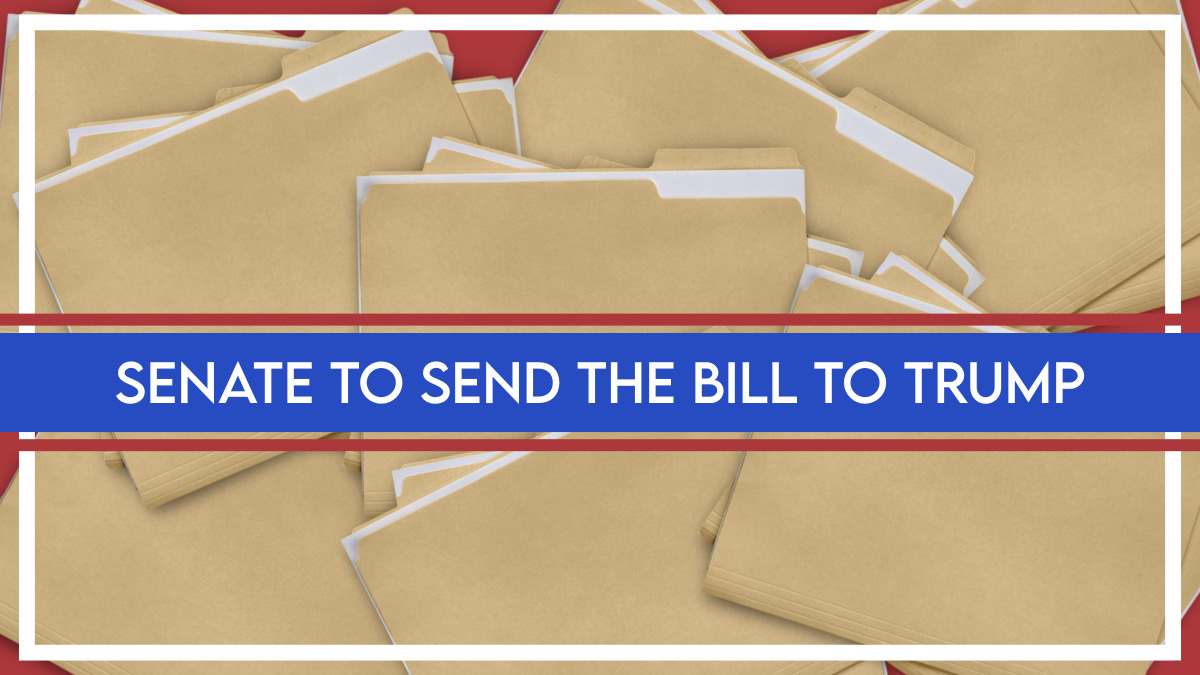
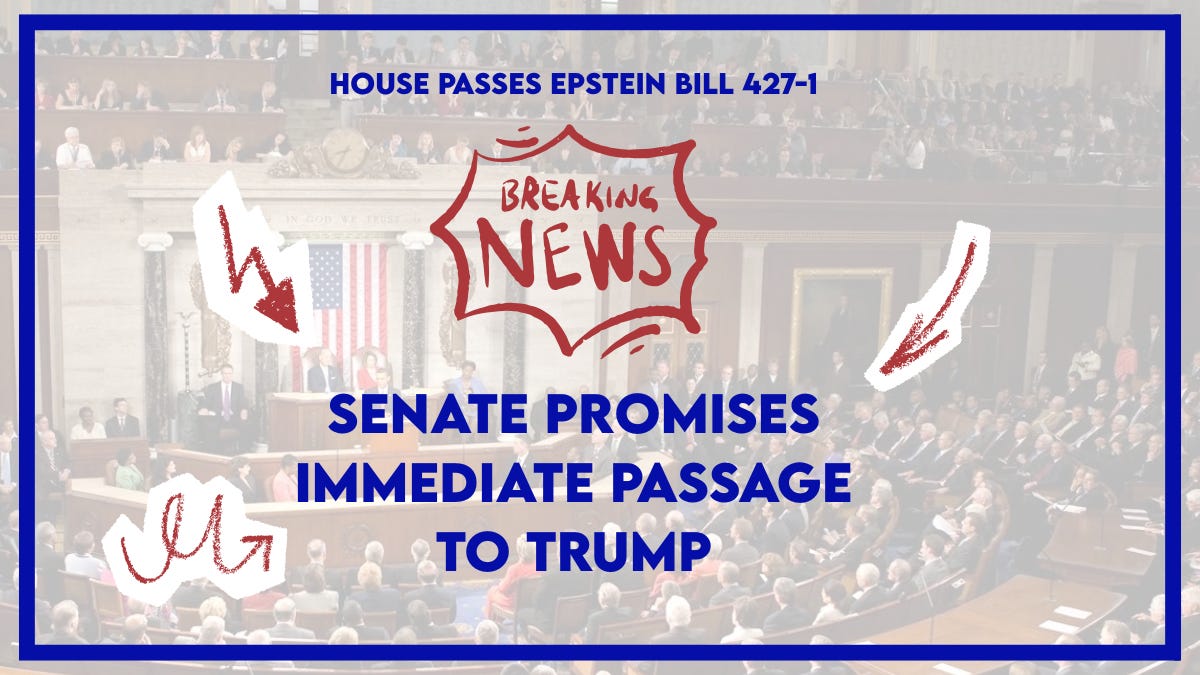
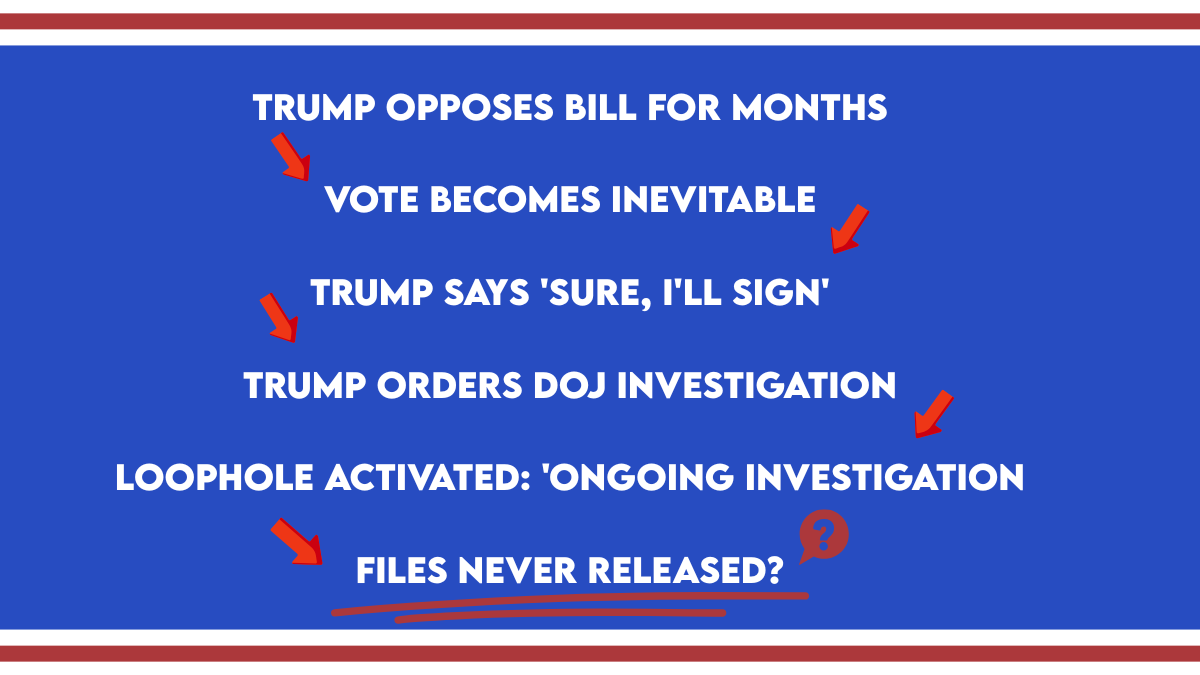
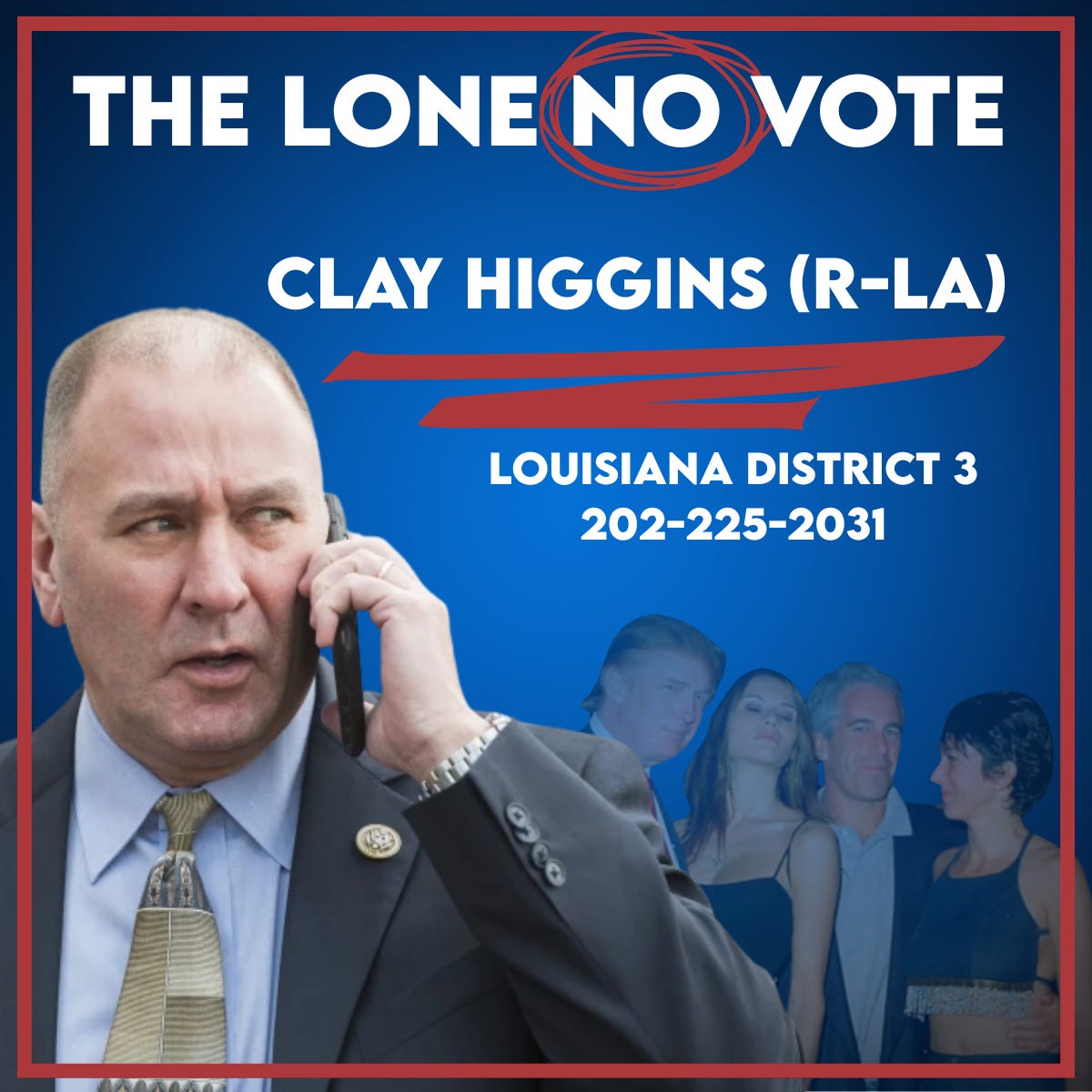
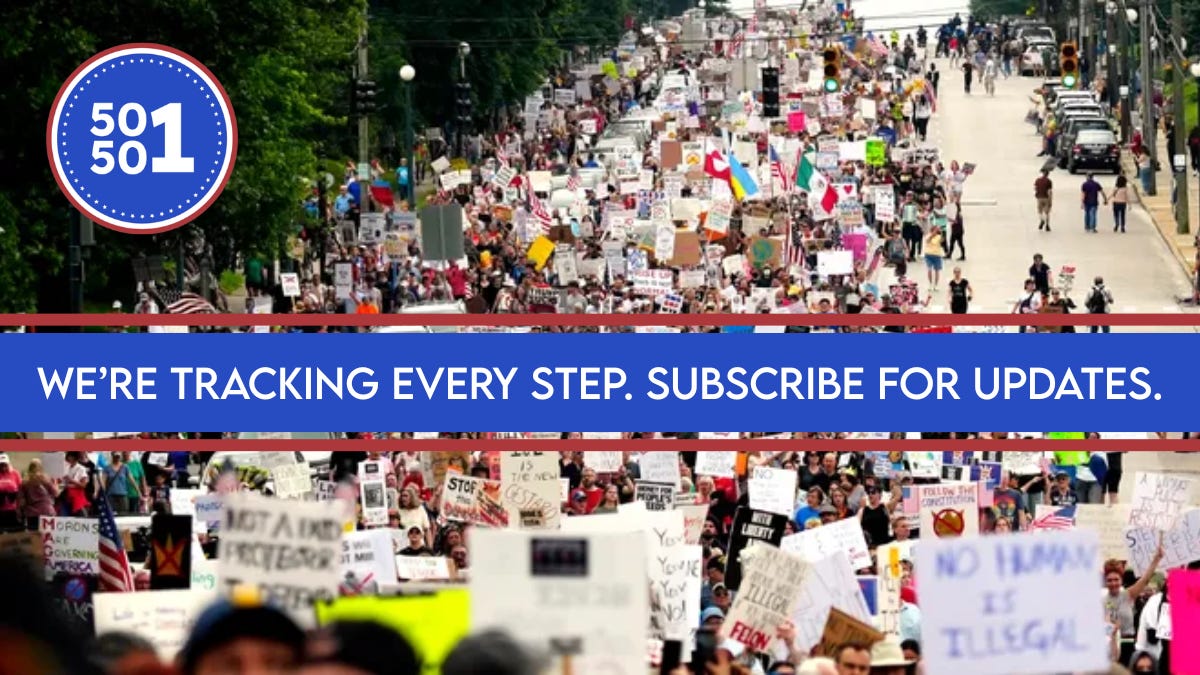

What an historic reflection of our society - a Department of Justice that offers an “out” to sexual abusers of children. How is America great again?
I’m in Italy at the moment. People are watching and waiting. America under Donald Trump and his band of merry sycophants is no longer a beacon of anything. We will not recover our status in the world until we are cleansed of this monstrous group, and even then I believe our recovery will take decades.